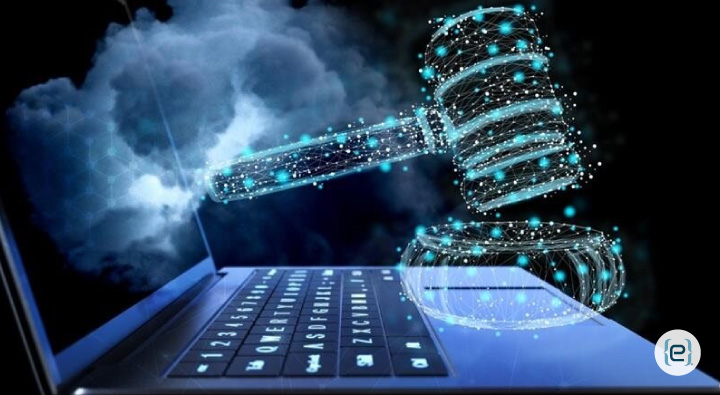Future Cyber Security Legislation: What to Expect in 2025 and Beyond


Future Cyber Security Legislation: What to Expect in 2025 and Beyond
Cyber threats evolve rapidly, and lawmakers are racing to keep up. New bills aim to strengthen your digital defenses and protect critical infrastructure. Some proposals focus on boosting funding for cyber security initiatives, while others seek to modernize outdated systems.
The U.S. government plans to introduce at least 18 new cyber security bills in the coming years to address growing online threats. These bills cover a range of issues, from securing federal networks to enhancing public-private partnerships. One key area of focus is improving the security of critical infrastructure like power grids and water systems.
Businesses should pay close attention to these upcoming regulations. You may need to update your security practices to comply with new standards. While some see these rules as burdensome, others view them as necessary steps to safeguard our increasingly digital society. As my grandpa used to say, “An ounce of prevention is worth a pound of cure” – and that’s especially true in the world of cyber security.
Evolution of Cyber Security Legislation
Cyber security laws have adapted rapidly to address emerging digital threats. New regulations aim to protect critical infrastructure and government systems from attacks.
Historical Overview: The first cyber security laws emerged in the 1980s as computer use grew. The US Computer Fraud and Abuse Act of 1986 made it illegal to access computers without authorization.
In the 1990s and 2000s, laws focused on protecting personal data. The EU’s Data Protection Directive and the US’s HIPAA safeguarded privacy.
After major breaches in the 2010s, stricter laws appeared. The EU’s GDPR in 2018 set hefty fines for data mishandling. California’s CCPA in 2020 gave consumers more control over their information.
Recent Advances in Cyber Law: New laws now target critical infrastructure and government systems. The 2022 Strengthening American Cyber security Act requires federal agencies and critical infrastructure to report cyber incidents quickly.
Some states have passed their own cyber laws. New York’s SHIELD Act expanded data breach notification requirements.
Globally, countries are beefing up cyber regulations. China’s 2021 Data Security Law restricts data transfers outside the country.
Looking ahead, lawmakers are eyeing AI-related cyber risks. Expect new rules on AI security and liability soon.
Key Principles for Future Legislation
Future cyber security laws will need to balance protection, innovation, and privacy. They should be flexible enough to keep up with rapidly changing threats while safeguarding individual rights.
Privacy and Data Protection: New laws must put privacy first. Companies should only collect data they truly need. People should have more control over their personal info.
Strict rules around data storage and sharing will be crucial. Laws may require “privacy by design” in new tech products. Fines for data breaches could get bigger.
User consent will likely become more important. Companies may need to be more upfront about how they use data. Laws could give people the “right to be forgotten” online.
Protecting kids’ data online will probably be a big focus. New rules might limit data collection from minors.
Cross-Border Data Flow: As the internet ignores borders, so must future cyber laws. Countries will need to work together more.
New agreements may set standards for moving data between nations. This could help businesses while protecting privacy.
Laws may address where data can be stored. Some countries might require certain data to stay within their borders.
Harmonizing cyber laws globally will be tricky but important. It could help fight cybercrime across borders.
Balancing national security with open data flow will be a challenge. Encryption rules may become a hot topic.
Incident Response and Reporting
Quick action after cyber attacks is key. Future laws will likely require faster reporting of breaches.
Companies may need detailed plans for cyber incidents. Laws could mandate regular testing of these plans.
Sharing threat info between businesses and the government may become required. But privacy concerns will need to be addressed.
New laws might set timelines for notifying customers about data breaches. Penalties for cover-ups could be harsh.
Standards for investigating and analyzing cyber incidents may be created. This could help everyone learn from attacks.
Anticipating Emerging Threats
As technology advances, new cyber security challenges arise. Two key areas of focus are AI regulation and securing the growing Internet of Things ecosystem.
Artificial Intelligence Regulation: AI brings exciting possibilities but also new risks. Lawmakers are working on rules to make AI safer and more trustworthy. These laws aim to prevent AI from being used for harmful purposes like creating deepfakes or spreading misinformation.
Companies developing AI might need to do “algorithmic impact assessments” to check for bias. There may also be rules about using AI in high-risk areas like healthcare or self-driving cars.
Some proposed laws focus on transparency. They want AI companies to explain how their systems work and make decisions. This could help build trust and catch potential problems early.
Balancing innovation with safety is tricky. Too many rules could slow progress, but too few could lead to dangerous AI. Finding the right mix is a big challenge for lawmakers.
Securing the Internet of Things: The Internet of Things (IoT) is growing fast. Soon, billions of devices will be connected online. This creates new security risks that need to be addressed.
One big concern is weak passwords on IoT devices. Hackers can easily guess them and take control. New laws might require stronger built-in security for IoT products.
Data privacy is another hot topic. IoT devices collect lots of personal info. Rules about how this data is stored and used are likely coming soon.
Updating IoT devices is crucial for security. But many users forget or don’t know how. Future laws could make automatic updates mandatory for IoT manufacturers.
Some countries are already working on IoT security standards. These could become global rules in the near future. The goal is to make our smart homes and cities safer from cyber attacks.
Public and Private Sector Collaboration
Teamwork between businesses and the government is key for strong cyber security. Companies and agencies each bring unique strengths to the table. Working together, they can tackle cyber threats more effectively.
Role of Industry in Shaping Policy: Tech companies play a big part in crafting cyber security laws. They share expertise on the latest threats and defenses. Many firms send representatives to testify before Congress. This helps lawmakers create smart, up-to-date policies.
Some businesses form coalitions to push for better cyber rules. These groups often suggest ways to improve proposed bills. They might point out flaws or offer ideas to make laws more practical.
Companies also run “bug bounty” programs. These reward hackers for finding weak spots in their systems. This proactive approach helps shape security standards across industries.
Government Initiatives and Partnerships: The government teams up with private firms in several ways. One example is the Cyber security and Infrastructure Security Agency (CISA). It works with businesses to protect critical systems.
Joint task forces are another common approach. These bring together experts from agencies and companies. They share intel on threats and coordinate responses to major attacks.
The National Institute of Standards and Technology (NIST) creates cyber security guidelines. It often asks for input from industry leaders when updating these rules.
Some agencies offer grants to businesses for cyber research. This helps spur innovation in security tech. It’s a win-win: companies get funding, and the government gains new tools to fight cybercrime.
Conclusions
The future of cybersecurity legislation is bright. This is because governments and organizations now realize that digital assets and data protection will increasingly become important in the years to come. In this respect, future legislation will most probably work toward closer collaboration between states to combat cybercrime.
Collaboration in tracking and punishing cybercrime offenders could be one such result. Companies may be under strict rules regarding disclosure when it comes to cyber-attacks. This will make learning from one another’s mistakes and therefore the improvement of your defenses possible.
Another source of gradual increase in stringency comes from privacy laws: as technology advances, people’s personal information is going to be increasingly protected.
Artificial Intelligence: In cyber security laws, the role of artificial intelligence could turn more prominent. It would quicken threat identification, thus making systems safer.
The fear is that too much rulemaking may stifle innovation. The challenge is indeed going to lie in drawing a line that provides a proper balance between security and progress.
Due to this, more cyber security experts are bound to be trained because of the legal requirements many businesses will have to consider. You can’t fight hackers with an army of couch potatoes! What future cyber laws will do, is ultimately create a safer digital world for one and all. This is a big job, but somebody’s gotta do it!
If you’re ready to strengthen your cyber defenses and stay ahead of upcoming regulations, contact eMazzanti today to learn how we can help safeguard your business.
Recent Posts
Step Up Your Threat Response With Security Copilot
As we move deeper into 2025, you are probably focusing on ways to expand your…
Watch Out for the Cyber Security Menace
As we move deeper into 2025, you are probably focusing on ways to expand your…
The Rise of AI Agents: Simplifying Tasks and Connecting Technologies
Introducing eCare Bot: Your Intelligent IT Support Assistant In today's fast-paced world, the emergence of…
Server Simplified
At eMazzanti Technologies, we recognize that stable, effective, and expandable servers are essential to the seamless operation of enterprises. For this reason, we collaborate with Hewlett Packard Enterprise (HPE) to offer our clients the best server solutions possible, customized to meet their unique requirements. HPE servers provide the performance and flexibility required for small and big businesses to manage data, support apps, and manage workloads with ease. Customers may choose the best HPE servers for their organization with the assistance of our team of specialists. We take the time to comprehend the particular needs of every client, including those related to processing speed, storage capacity, and security features. Whether our clients require a general-purpose ProLiant server or a…
How to Make Your AI Copy Sound Authentic: Writing Like a Human, Not a Machine
AI writing tools have become popular for creating content quickly. But many readers can spot…
Data Analytics for Old-School Business Owners: Turning Dusty Ledgers into Gold Mines
Data analytics is changing the game for businesses of all types, including old-school industries that…


